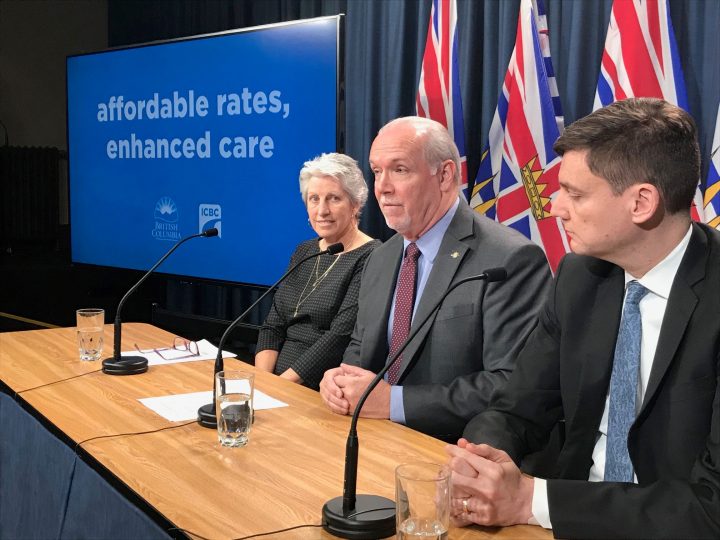The B.C. government is taking another crack at cutting down on the use of expert reports in ICBC settlement cases.

The province is introducing amendments to the Evidence Act that will limit the number of experts and expert reports that can be used in court on the issue of damages.
“With limits on the number of experts and expert reports, we are reducing the cost, complexity, and delay associated with expensive duelling experts,” Attorney General David Eby said.
“It means that claims will be resolved more efficiently.”
Last year the province attempted to limit expert reports but the change, which was expected to save the province $400 million in this year’s budget, was defeated in court.
B.C. Supreme Court Chief Justice Christopher Hinkson ruled the B.C. government’s limits on expert reports was unconstitutional because it violated the powers of a court’s control over its processes.
“I find that the impugned rule compromises and dilutes the role of the court, and encroaches upon a core area of the court’s jurisdiction to control its process,” Hinkson wrote in the ruling.
The legal challenge was brought in part by the Trial Lawyers Association of British Columbia (TLABC), which called the change an attack on the “most grievously injured British Columbians” and argued it would lead to unprecedented interference.
Eby is optimistic the legislation will withstand legal challenges.
The Trial Lawyers Association of B.C. has sent a letter to it’s membership about the legislation. The organization says the legislation raises significant constitutional concerns including access to justice.
“By imposing a limit on total court expenses to 5% of judgment or settlement amounts for all trials after October 1, 2020, the rule retroactively punishes litigants by forcing them to pay out of their own settlement court expenses that were lawfully, properly and reasonably incurred at the time they were obtained to prosecute their cases and in compliance with the rules,” the letter reads.
“Assuming this bill is enacted into law, with accompanying regulations, the TLABC will consider legal recourse on behalf of the public.”
The legislation will provide judicial discretion to allow additional expert reports in appropriate cases. There will be a limit of one expert and expert report for each party for fast-track claims under $100,000, and as many as three experts and reports for all other claims.

The parties can agree to use more experts without the need to file a formal application to the court.
The proposed regulations would place a limit on the amount recoverable from the unsuccessful litigant for the cost of each expert report in motor vehicle personal injury cases to $3,000.
Total recoverable disbursements in motor vehicle personal injury cases would also be limited to five per cent of the judgment or settlement.
The province is concerned about runaway legal costs on the more than 90,000 active auto-insurance claims that will be dealt with under the current system. The province is set to change to a no-fault style system on May 1, 2021.

According to the provincial government, the use of experts has contributed to a 30 per cent increase in the cost of litigated ICBC injury claims since 2017.
The limit on experts will not apply if the expert report was served before Feb. 6, 2020, or if a notice of trial was filed and served before Feb. 6, 2020, for a trial before Oct. 1, 2020.




Comments